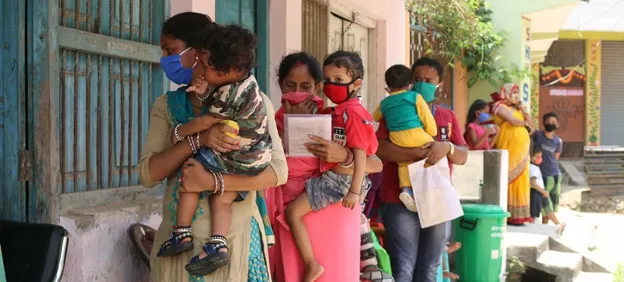As the G7 leaders of the world’s wealthiest nations concluded their summit in Kananaskis on June 16th, it became clear that one crucial issue was missing from the agenda – the future of global health financing. Despite the devastating impact of COVID-19 on lives, economies, and healthcare systems, the topic of health seems to have taken a backseat amidst escalating geopolitical tensions, trade conflicts, and cuts to development aid. This failure to acknowledge the importance of global health financing at such a critical time is alarming and could have dire consequences for the world’s most vulnerable populations.
The COVID-19 pandemic has exposed the fragility of our healthcare systems and highlighted the need for coordinated global action in responding to health crises. The G7 summit presented a unique opportunity for world leaders to come together and address the urgent need for increased investment in public health infrastructure. However, instead of prioritizing this issue, the G7 leaders seemed preoccupied with other pressing matters, neglecting the importance of sustained investment in global health.
One cannot underestimate the devastating impact that inadequate global health financing can have on the world. As the pandemic continues to ravage countries with weak healthcare systems, it is evident that the consequences of underfunding public health will be catastrophic. Already, we have witnessed the unequal distribution of resources, with wealthy countries procuring the majority of vaccines while low-income countries struggle to secure even a fraction of their required doses. This inequality will only perpetuate the vicious cycle of poverty and ill-health, as countries without access to essential healthcare services are unable to properly manage and contain health emergencies.
Moreover, the lack of global health financing also poses a threat in terms of future pandemics. The ongoing COVID-19 crisis has taught us that diseases do not respect borders, and a failure to address health issues on a global scale can have far-reaching consequences. Without adequate investment in public health infrastructure, we risk being unprepared for future health emergencies, and this will only lead to further economic and social disruptions.
It is, therefore, crucial for the G7 leaders to recognize the importance of global health financing and take immediate action to address this issue. This includes increasing investment in public health infrastructure, boosting the capacity of healthcare systems in low-income countries, and ensuring equitable access to essential healthcare services, including vaccines and treatments. Additionally, the G7 must commit to supporting international organizations such as the World Health Organization (WHO) to effectively coordinate global health responses and ensure a unified approach in addressing future health emergencies.
The G7 leaders must also recognize that global health is an integral part of global economic stability. The pandemic has made it clear that the health of the global population is directly linked to the health of the world economy. Therefore, investing in global health financing is not only a moral imperative but also a smart economic decision. A healthier world means more stable economies, making it a win-win situation for all.
Furthermore, we must not forget the impact of global health financing on achieving the United Nations Sustainable Development Goals (SDGs). Health is intrinsically linked to all 17 goals, and without adequate investment, it will be challenging to achieve any of these goals by the 2030 target. The G7 leaders must recognize the interconnectedness of these goals and prioritize global health financing as a vital component in achieving them.
In conclusion, as world leaders thrive to address pressing issues such as geopolitical tensions, trade conflicts, and economic recovery, they must not lose sight of the critical issue of global health financing. The pandemic has reminded us of the importance of collective global action, and the G7 must lead by example in investing in public health infrastructure and ensuring equitable access to essential healthcare services for all. It is only through proactive and sustained investment in global health that we can build a safer, healthier, and more prosperous world for all. The time to act is now, as we cannot afford to put health on the back burner any longer. Let us hope that the next G7 summit will see global health financing take its rightful place at the top of the agenda.



